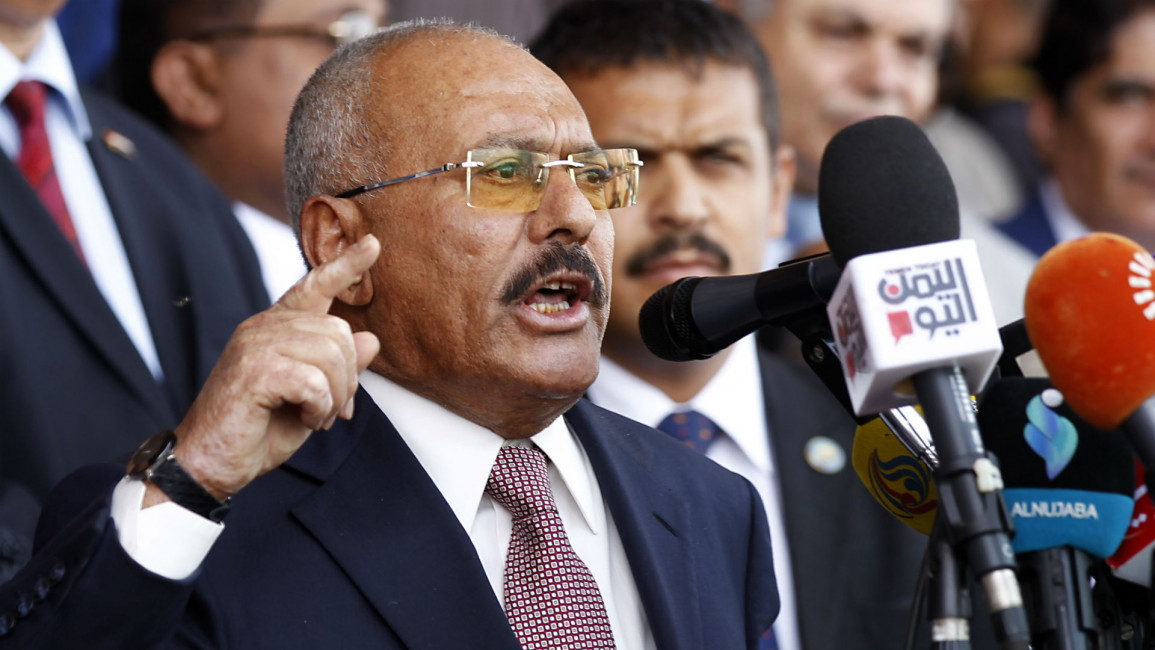Slain Yemen President Saleh's former party elects new chief
The political party of Yemen's former President Ali Abdullah Saleh, who was killed in December by his Houthi rebel allies, named his replacement on Sunday.
The General People's Congress, a leading player in Yemeni politics for decades, elected former deputy premier Sadiq Amin Aburas by consensus at a meeting of its general committee, it said in a statement.
It made no mention of the Houthis, but said it would continue to "reject and resist aggression and siege" against Yemen, a reference to a military campaign being waged since 2015 by a Saudi-led coalition.
The GPC said 65-year-old Aburas would lead it until its next general assembly, a date for which could not yet be set "because of the current difficulties".
Aburas also heads the party's five-member executive committee.
The GPC said it was still open to dialogue and "national reconciliation".
Aburas is seen as having been close to Saleh, the long-time Yemeni strongman killed by Houthi gunmen on 4 December after their alliance collapsed.
Saleh held power in the Arabian Peninsula country for three decades before being ousted in 2012 following mass protests as part of the regional Arab Spring.
He later allied with his former enemies, the Iran-backed Houthis, to seize the capital in 2014 from the internationally-backed government of President Abd Rabbo Mansour Hadi.
That prompted Iran's regional arch-rival Saudi Arabia to lead an intervention against the alliance the following year in a military intervention that has killed thousands.
In late 2017, the Saleh-Houthi alliance fell apart after Saleh offered to "turn the page" with Riyadh in return for a ceasefire and the lifting of a crippling blockade.
That sparked a street battle in Sanaa, and Saleh was gunned down as he attempted to flee, according to some reports.
More than 10,000 people have been killed since the Saudi-led coalition intervened in Yemen, according to United Nation figures.
The country also faces what the UN has called the world's worst humanitarian crisis.
Agencies contributed to this report.


![President Pezeshkian has denounced Israel's attacks on Lebanon [Getty]](/sites/default/files/styles/image_684x385/public/2173482924.jpeg?h=a5f2f23a&itok=q3evVtko)



 Follow the Middle East's top stories in English at The New Arab on Google News
Follow the Middle East's top stories in English at The New Arab on Google News


